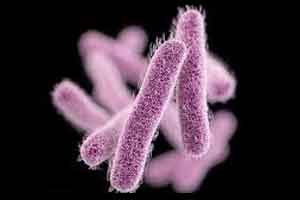- Home
- Editorial
- News
- Practice Guidelines
- Anesthesiology Guidelines
- Cancer Guidelines
- Cardiac Sciences Guidelines
- Critical Care Guidelines
- Dentistry Guidelines
- Dermatology Guidelines
- Diabetes and Endo Guidelines
- Diagnostics Guidelines
- ENT Guidelines
- Featured Practice Guidelines
- Gastroenterology Guidelines
- Geriatrics Guidelines
- Medicine Guidelines
- Nephrology Guidelines
- Neurosciences Guidelines
- Obs and Gynae Guidelines
- Ophthalmology Guidelines
- Orthopaedics Guidelines
- Paediatrics Guidelines
- Psychiatry Guidelines
- Pulmonology Guidelines
- Radiology Guidelines
- Surgery Guidelines
- Urology Guidelines
New antibiotic Darobactin- answer to resistant gram-negative bacteria

According to the World Health Organization, antibiotic resistance is one of the biggest threats to global health today and a significant contributor to higher medical costs and increased mortality. Unfortunately, more and more bacterial pathogens of infectious diseases become resistant to customary antibiotics. Gram-negative Bacteria such as Escherichia coli and Klebsiella pneumoniae have become resistant to the most currently available antibiotics.
An international team of researchers, with the participation of scientists from Justus Liebig University Giessen (JLU), has now discovered a novel peptide, that is effective against gram-negative bacteria. The isolated peptide has been named Darobactin. Darobactin binds to the BamA protein, located in the external membrane of gram-negative bacteria.
Please also read -Fish mucus may be source of potential new Antibiotics to fight drug resistance
"Since the 1960s scientists have not succeeded in developing a new class of antibiotics effective against gram-negative bacteria, but this could now be possible with the help of this peptide," said Prof. Till Schäberle from the Institute of Insect Biotechnology at JLU and project leader at the DZIF. His research group is involved in the discovery. The researchers use a screening, a classical approach from natural product research. Thereby the team of Prof. Kim Lewis, Northeastern University in Boston, Massachusetts (USA), tested extracts of bacterial symbionts of insect-pathogenic nematodes to verify the activity against E. coli. Thus, the researchers were able to isolate a peptide that they have called Darobactin.
Please also read -New class of antibiotics discovered to combat drug resistance
Darobactin consists of seven amino acids several of which are linked via unusual ring closures. The substance shows no cell toxicity -- a prerequisite for the use as an antibiotic. "We have already been able to gain insights about how the bacteria synthesize this molecule," said Prof. Schäberle. "Currently we are working in the field of natural product research at the Institute of Insect Biotechnology of the JLU to increase the production of this substance and to generate analogues."
The researchers also determined the site of action of Darobactin. They found that Darobactin binds to the BamA protein, located in the external membrane of gram-negative bacteria. As a result, the establishment of a functional external membrane is disrupted and the bacteria die off. "It is particularly interesting to note that this previously unknown weak point is located on the outside of the bacteria where substances can easily reach it," explains Prof. Schäberle.
Darobactin exhibited an excellent effect in the case of infections with both wild-types, as well as antibiotic-resistant Pseudomonas aeruginosa, Escherichia coli and Klebsiella pneumoniae strains. Thus, Darobactin presents a very promising lead substance for the development of a new antibiotic. The urgency of this matter is also emphasised by the fact that the World Health Organisation (WHO) has attributed the necessity of research and development against resistant pathogens the highest priority for human health.
For further reference log on to :
A new antibiotic selectively kills Gram-negative pathogens. Nature, 2019; DOI: 10.1038/s41586-019-1791-1

Disclaimer: This site is primarily intended for healthcare professionals. Any content/information on this website does not replace the advice of medical and/or health professionals and should not be construed as medical/diagnostic advice/endorsement or prescription. Use of this site is subject to our terms of use, privacy policy, advertisement policy. © 2020 Minerva Medical Treatment Pvt Ltd